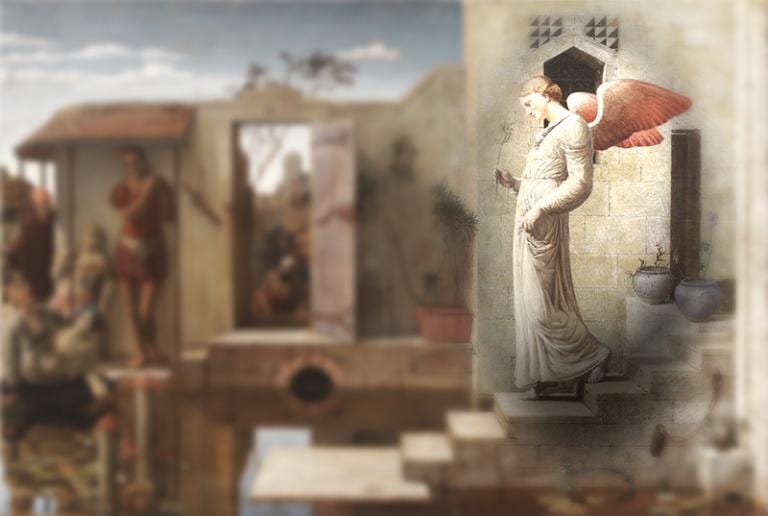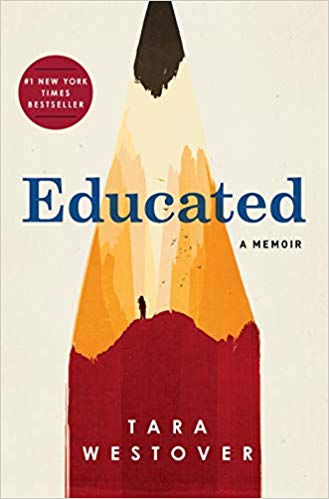Do I want to be well? It’s a harder decision than most of us realize. It’s easier to be sick, to be able to blame the sickness for not being able to do this or that. It’s also far easier to blame others on not being well because they didn’t show up with exactly what we needed at the exact time we needed them.

Several years ago, I was in Jerusalem and ended up at the Sheep Gate there, seeing the empty pool of Bethesda. The John 5 story popped up in my mind.
Soon another Feast came around and Jesus was back in Jerusalem. Near the Sheep Gate in Jerusalem there was a pool, in Hebrew called Bethesda, with five alcoves.
Hundreds of sick people – blind, crippled, paralyzed – were in these alcoves. One man had been an invalid there for thirty-eight years.
When Jesus saw him stretched out by the pool and knew how long he had been there, he said, “Do you want to get well?”
The sick man said, “Sir, when the water is stirred, I don’t have anybody to put me in the pool. By the time I get there, somebody else is already in.”
Jesus said, “Get up, take your bedroll, start walking.”
The man was healed on the spot. He picked up his bedroll and walked off. (The Message Translation)
Think about this man. He’s lived 38 years—probably his entire life–in sickness. He’s never been a productive member of his society. In an economy where everyone either contributes or dies, where wellness and fertility are clear signs of God’s blessing, his disability made him an outcast, one of the cursed and unloved.
He survived, somehow managing to stay alive by the hope that maybe he would be healed. BUT, he’s at the mercy of someone else to find that healing.
If that other, in his case an angel, doesn’t show up at precisely the right moment when an aide, another “other” is near him to get him the water first–and can you imagine the wild rush when the waters stirred?–he remains that outcast beggar, always dependent on the charity of others.
Do you want to be well?
One otherwise ordinary day, Jesus strolls up, picks him out of the crowd and asks, “Do you want to be well?”
Think about the drama of the moment. We don’t know if those around heard this question–city gates tended to be noisy places with animals braying and carts swaying and multiple conversations all at once. If bystanders did catch Jesus’ words, they’d probably laugh derisively at the question.
But assume for a moment that, because of the other noise and distractions, this became a private moment in a public square. Visualize one man, lying on a tattered, dirty mat, hand out, hoping for a few coins so he could feed himself yet one more day. Observe another man, healthy and vibrant, squatting alongside; his eyes fixed on the eyes of the prone one.
“Do you want to be well?”
From what we read, the mat-man’s initial response carried the usual excuse of something along these lines, “I can’t be well because . . . I just can’t. I never get the help I need when I need it. It is not my fault.”
Jesus ignores that response. Instead, he says, with what might look like cruelty to an onlooker, “Pick up your mat and walk.”
The mat-man has never walked. He has never plowed a field, or taken a herd of sheep into the hills or built a hut or dug a well—all necessary skills in that time to stay alive.
He’s lived his life in total dependency on others. That’s all he knows.
Suddenly, his world re-orders itself. If he does indeed take up his mat and walk, he’ll have to learn entirely new skills, a way of living that is quite foreign to him.
A harder decision than we realize
Human reality: we prefer the devil we know to the devil we do not know.
Will this man leave behind the world he knows, one that, amazingly enough in a day of very limited life spans, had kept him alive for 38 years?
Will he take on the serious challenges of being well, of being fully responsible for himself and his survival?
Or will he stay with what he knows and respond with, “Don’t be stupid and mean. You KNOW I can’t do that.”
And yet, do I want to be well? Do you want to be well?
It’s a harder decision than most of us realize. It’s easier to be sick, to be able to blame the sickness for not being able to do this or that. It’s also far easier to blame others on not being well because they didn’t show up with exactly what we needed at the exact time we needed them.
To be well means we take total responsibility for our own health, for whatever contributions we make, or don’t make, to the broader community to which we are connected.
What would you do?
He picks up his mat.
He walks for the first time. And his life is irrevocably changed.
He can no longer cast the blame of his fate onto others.
When he picked up the mat, he picked up the responsibility.
The truth: it is hard work to be well, to own one’s soul, to be the one responsible for one’s future.
Women may suffer the most here
I speak from my own experience and challenges of getting well, i.e., taking responsibility for my present and future self. I also add to it the many other stories I’ve read and heard from others. I am increasingly convinced it would be wise to link some portion of the growing numbers of depressive diseases to religious worlds that deny women, in particular, the right to be responsible for themselves.
Because of the (presumably biblical) rule that insists males and males only have final leadership voice and authority in home and church, many women find themselves having to deny the authenticity of their inner voices, their memories, and their thoughts.
In doing so, they also deny their essential humanness of living out of mental and spiritual freedom.
 For a perfect example, I urge you to read Tara Westover’s compelling, honest and painful memoir, Educated. I confess I could not put it down after I started it.
For a perfect example, I urge you to read Tara Westover’s compelling, honest and painful memoir, Educated. I confess I could not put it down after I started it.
I want to make it clear here: most of the men who take on these kinds of leadership roles that deny female voices are not evil people. They are instead living out of what has been drilled into their souls and minds.
They have no idea how damaging it is to the women in their lives, primarily because the women dare not speak it out for fear of being labeled “rebellious” or “unspiritual” or “unbiblical” in their understandings.
An enlightening moment when offering a kidney
Several years ago, I sought to donate a kidney to my brother. As part of the vetting process, I met with a psychiatrist at the UCLA medical center. His job: evaluate my mental stability to make this kind of complex decision.
The psychiatrist asked if I had ever been suicidal. I asked him if he had much experience with women living in extremely patriarchal societies. He had not, so I explained to him how I had reached a point where I either had to kill my mind and soul to remain in the world I knew, or to kill my body.
I very nearly choose the death of my body as I could not see how I could survive without my mind and soul.
As I spoke, he looked at me with a growing look of astonishment. Then he said, “Now I understand why Utah is the state with the highest number of antidepressant prescriptions written.”
According to his statistics, a significant percentage of Mormon women take an antidepressant. It’s a way they can survive a world where they have no voice.
But this is not just a Mormon problem. Many, many women, living in theological worlds where they face routine silencing in the name of “obeying God,” face the same issues.
Should the women object, the response is: “But the Bible says . . . ” And who can argue with that?
Well, I finally did. I got well but paid a huge price for it.
That’s what wellness does: it costs. It demands the hard work of refusing to blame others, of insisting I take responsibility for my decisions, of intentionally doing things that lead to wellness. It costs.
A major difference between wellness and the absence of specific illnesses

Furthermore, none of these actions mean that my body does not face illnesses–there’s a giant difference between wellness and the absence of specific illnesses.
Wellness means I own what happens; I discern the things I do may lead to illnesses; I acknowledge that sometimes stuff just happens and bodies and minds get sick.
Wellness means I take it upon myself to do the best I can with what I have.
Like it or not, embracing wellness often means changing the entire way of life. Movement from an oppressive religious system into spiritual freedom is possibly the most life-upending decision ever.
The mat-man likely faced this when he entered for the first time a world of physical vitality and the responsibility that goes with it: it takes time to build to new patterns. We human resist changing patterns. That’s why breaking bad habits takes such great efforts.
As did the Israelites in the Exodus story, fearfully facing the survival challenges of desert-freedom, many expressed a longing to return to the safety of slavery–at least food is available there.
When we choose health, we face unending temptations to put down our mats, to let others make your decisions for us, to let fear take us down, to re-enter slavery. The more known paths, despite their destructiveness, beckon us with their safety, their surety.
Walking in the unknowns of freedom demands massive energy. We tire more easily. Again, we long for what we know.
But if we stay the course, we shall also live. We’ll the freedom to enter the mysterious, ever-unknown places found in the infinity of God’s presence and infinite grace. We will, repeatedly say a hearty “YES” to the question, “Do you want to be well?”
Photo Credit: By Robert Bateman (1836 – 1889) – Artist (British)Details of artist on Google Art Project – Public Domain, Link, Modified by Christy Thomas.
Photo Credit: Educated book cover photo: Amazon.com













